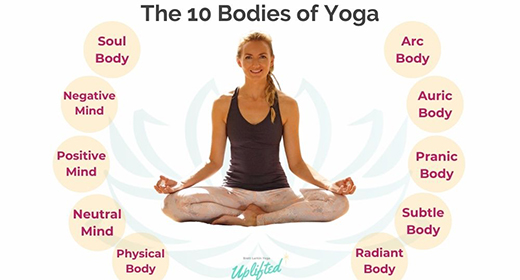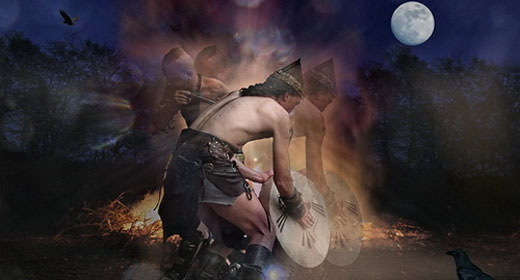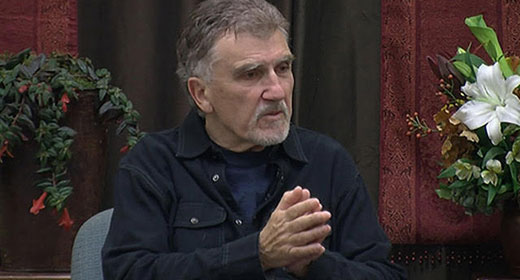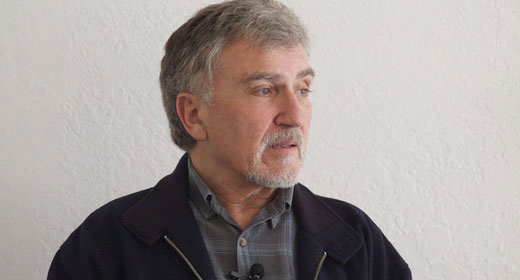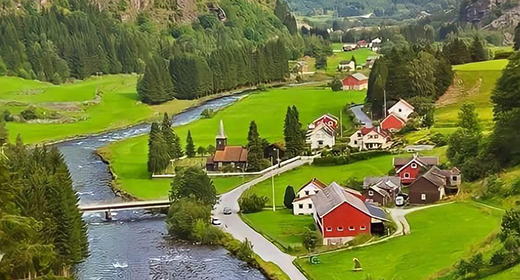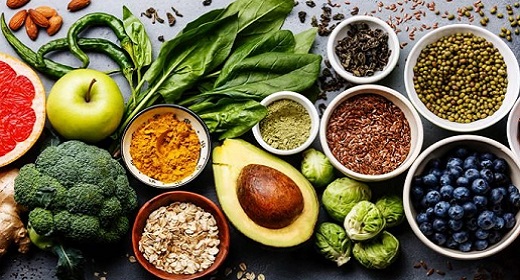An interview with Margot Anand by Susan Bridle: “Absolutely not. I totally disagree with you. I would say radically no. The tantric path is profoundly a spiritual path,” she stated emphatically. Had I gone too far? 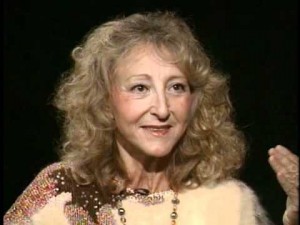 I had just asked Margot Anand [formerly Margo Anand], the world-renowned teacher of tantric sexuality, if modern tantra may not really be a genuine spiritual path.
I had just asked Margot Anand [formerly Margo Anand], the world-renowned teacher of tantric sexuality, if modern tantra may not really be a genuine spiritual path.
WIE: I’d like to start, if you will, with a simple definition of the path of tantra.
Margot Anand: I would say that tantra is a path that opens a person up to the possibility that sexuality can be a door to higher states of consciousness. And another definition I have is that it is a way to weave the many contradictory aspects of your personality into one unified whole for the purpose of the expansion of your consciousness. The beauty of tantra is that it is a spiritual path that teaches about enlightenment, yet it is one of the rare spiritual paths that actually does not leave sexuality out but teaches that sexuality can be a door to personal illumination or waking up. Many, many spiritual traditions, as you know, especially Christianity, have taught that in order to achieve enlightened states, you have to let go of sexuality or you have to consider that it’s of the lower realms. You have to just be “above the belt.” What is “below the belt” is just not to be dealt with. So that’s why I appreciate tantra. It’s an approach of the whole person that includes everything.
WIE: Why do you think tantra has become so popular in the United States and Europe in the last decade or so?
MA: I think the reason it’s so popular is that we’re now healing ourselves from the Christian tradition that taught a complete separation between flesh and spirit and impregnated us with the idea that we’re born in original sin—which is the most ridiculous idea I’ve ever heard. The Church and the people in power have all been in a kind of conspiracy to preserve the anti-ecstatic attitude that we live in, because when you keep people in bondage through guilt and shame, you cut off their most vital, powerful force and energy. That is the energy of orgasms, which opens the door to one’s own direct, creative self. When you cut people off from that, they are despondent, and then they go to you to tell them what to do and expect you to be the intermediary between them and God.
If you study the traditions we come from, you know that about a century or two after Christ, through the apostles and the writing of the New Testament, the power of the Church was developed. And there was a tremendous association with pain, suffering, being martyred, being sacrificed. So it became almost more desirable and more respected to be someone who was in pain, sacrifice and martyrdom than to be someone who was in pleasure.
This is why in my Love and Ecstasy Training I always bring forth the mythology and cosmology of the tantric perspective, with the idea of the marriage between Shiva and Shakti, between consciousness and energy, between life and spirit. This is a much more life-affirming, pro-ecstatic approach than that of the Judeo-Christian tradition. It is in this union between the masculine and the feminine, which is a creative and erotic act, that all the forms of the universe are born. I think that now we’re at a crisis point, and we need to come to a holistic consideration about spirituality that includes the body, that includes the emotions, that includes our sexuality.
Another reason why tantra is popular is because we need sexual healing. Unfortunately, the downside of that is that there’s a tremendous misunderstanding of tantra, especially in America. For many years, tantra was misunderstood as simply sexual healing and indulgence. Many so-called tantra teachers and so-called tantra movements—and even the Hollywood socialites, you know, some of whom I used to teach—think that you just need to tickle your G-spot for four hours and take a few drugs and then you reach enlightenment and that’s what tantra is about. No, it isn’t. There has been a great misunderstanding, a feeling that after such a long time of sexual repression, now we are entering into the garden of delight, and we can basically do whatever we want—cavort and f__ and suck and do all these things—albeit more consciously than before. This is still not tantra. So I think it’s very important to really make the distinction that tantric spirituality is not about just indulging in sexual orgies.
WIE: You’ve been speaking about the fear and shame about sex, about the body, which are the legacy of our Christian heritage and which, in spite of the sexual revolution of the 1960s, still are very deeply rooted in our culture. One of the most important aspects of your work, it seems to me, is that you give people powerful tools for facing and liberating themselves from this fear, shame and guilt, which are so often repressive and destructive.
MA: Yes, well, it’s interesting to know how the idea of original sin was actually introduced into our religious thinking. It turns out that St. Augustine was a very devoted man, devoted to God, and at a very early age wanted to enter into the Church, into priesthood and celibacy. But he was also a very sexual being and he had a lot of sexual energy. Throughout his entire life, he struggled without success to control his libido. And so it ended up that almost every day, he couldn’t resist; he had to pleasure himself and release himself. St. Augustine was in great pain because he was really sincere, and he couldn’t understand why, with all of his desire to be with God and to transcend, he didn’t manage—why the urge of his instinctual libido always plagued him so and why he always had to deal with it in a way that he didn’t want to. So finally, out of this, he concluded that there was an element in us that predates the control that we can have through our mental and spiritual powers, and he called this “original sin.” He introduced this idea into the doctrine of the Church. And it was then adopted as a very useful tool for the Church.
There is also the split between male and female, where the patriarchy basically took over and it was considered that anything that had to do with women was secondary. There are so many myths in our religious traditions that are simply totally ridiculous, including the myth of Adam and Eve or the Virgin Mary. How could Mary have given birth as a virgin, and why should that be?
There can be no true spirituality, in my estimation, if there isn’t a complete reconsideration of the fact that God has a masculine face and a feminine face, that there is the father and the mother and that they are both of equal necessity, that they’re both equally valid archetypes to help us understand the totality of God, which transcends both genders of course.
What is finally becoming more and more prominent is an awakening of a spirituality that takes sexuality along. It is the understanding that now it’s possible, and it’s attractive, to have a direct experience of God, that in fact it’s possible to have what I would call a “spiritual orgasm,” and that enlightenment happens through this experience of spiritual orgasm. There was an article by Deepak Chopra in Playboy magazine that asked, “Does God Have Orgasms?” I love that title, you know. And I believe that through the orgasmic experience you can have an experience of ecstasy which then opens you up to having an experience of the Divine. Obviously it takes some practice and some understanding, but now people are beginning more and more to understand that we don’t need the priest, the middleman. We don’t need to think of spirituality as a “place” where you just go to church on Sundays—where you confess your sins and then go back to doing the same things. We need spiritual teachers who will initiate us, but that’s different from going to a Catholic priest with an attitude that says, “Tell me what to do. Absolve me of my sins.” That’s a very childish kind of attitude. And all of this results from the Church’s having valued pain over pleasure, having split the flesh from the spirit. And we still get this from our parents and grandparents.
WIE: In The Art of Sexual Ecstasy you write about a number of people who were greatly empowered by the sexual practices that you teach. Because sex is such a powerful force, to become the master of it rather than being controlled by it in one way or another clearly would give one a lot of self-confidence.
MA: There’s a woman who has a top job in this country as the leader of a big business organization. She’s currently in my yearlong training. She said that the ability to clear her yoni (as we call the female sexual organ) of tensions through the practices that we do in the training opened her up to an incredible understanding. Until that day, she never felt she could be accountable to important clients beyond a certain level because she felt she would fail. She felt she didn’t have it together as a woman and wouldn’t have enough power. When she cleared herself and was able to access much deeper levels of orgasm and, in the process, was able to guide her partner and tell him how to give her what she needed sexually, she suddenly found that now she was totally empowered. She could go back to her company and accept much larger responsibilities and be accountable for much larger jobs. She attributes this to her ability to access a deeper orgasmic power and to channel that power through her other chakras, or energy centers.
This empowerment takes many forms. At first I thought that my Love and Ecstasy Training would be about learning how to have more orgasms, better orgasms, deeper orgasms. But we discovered that life is not just about having more orgasms, but rather it’s about being orgasmic in every moment.
Another thing I discovered is that most of the people in this country who are creative, who are innovators, who are visionaries, who are making a difference are closet ecstatics. They’re all cultivating ecstatic states in their lives, many through tantra, some through other approaches. But they just don’t talk about it because they know if they did—some of them work in the White House or have important jobs—they would have the press on their backs, or they wouldn’t be respected or taken seriously. So everybody pretends that they’re all aboveboard, but it’s all going on with everybody.
WIE: Tantra, as it’s become more popular, has become equated in many people’s minds with sex only, rather than understood as a comprehensive spiritual path. What would you say to people who are critical of tantra’s focus on sex?
MA: Well, there are many paths of tantra. I certainly respect the traditional Tibetan approach, which says that these sexual practices should be kept secret because they require a tremendous amount of preliminary education, purification and spiritual practice before a person is actually ready to tackle the question of sexual tantra. Now people haven’t done this preparation in this culture, and everybody goes around saying “tantra” just because they had a blissful experience through an extended orgasm during lovemaking. But in truth, to really access the spiritual dimension or ecstatic freedom and maintain it while you make love, you need to purify, you need to cleanse yourself majorly. Otherwise, you get stuck with your orgasmic energy, and there’s sort of an ego aggrandizement—”Oh, this is special; this is great; now I have more power; now I have you and you have me.” You see, as long as you stay in the first three chakras, you’re stuck. You’ll be stuck in dependency, neediness, jealousy, the whole bit. To be able to transcend that and move to the higher chakras requires a combination of intense spiritual inquiry as well as developing the skill of channeling sexual energy. Ideally, I speak of a process in which you can do both in a parallel sense.
Osho, who was one of my greatest teachers and masters, used to say that sex is like the fruit on the tree. When the fruit is ripe, the fruit falls off the tree and there is no longer any need for the fruit to be on the tree. He was saying that you need to really go to the roots of what this sexual energy is, you need to fully explore it, to fully taste it. Then you will transcend it. This approach is to go through the sexuality, live the sexuality to the fullest, and take that energy and begin to channel it to all the other areas of your being.
WIE: You’re saying that tantra is a path that is definitely supposed be about more than sexual pleasure?
MA: Yes. The energy of sexual pleasure can transform consciousness when it moves through the chakras. But you may ask: What about the spiritual domain? I would say that there comes a point for some people, depending on their past lives and their karmic predicament, where sexuality has been known, understood and tasted, and it’s not so important anymore. What Osho meant is that at a certain point in a person’s spiritual evolution, the intense concern about sexuality drops away. One is not so dependent on it anymore. One doesn’t need it so much. It seems to me that, more and more often, I feel that I am free. Freedom for me means that I am equally happy and feel equally satisfied whether I am with my partner or on my own. I don’t need to have the security of something fixed and established in terms of a sexual menu or sexual practice. Sometimes it’s there, and it’s immensely intense and incredibly enlightening, and sometimes it’s not there, and then it is my task to be just as open and enlightened without sexuality in my life. Ultimately, all the rivers lead to the ocean.
And love doesn’t just depend on sex. With or without sexual bliss, everything is all ultimately an expression of love for Self. The deeper you can love yourself, in the true sense of the word, the deeper you can love God. Since you are God’s creation, when you experience a great orgasm, you are rejoicing in the joy of connecting with the Divine. Now you can experience orgasm with sex, or you can experience orgasm without sex. You can also have an ecstatic experience through meditation or through dance. This too can be orgasmic. Moreover, when you dwell in the ecstatic freedom of spirit, sexual orgasm sometimes seems like a poor parent to this sense of unbounded freedom. Spiritual awakening is all-encompassing and all-transcending. It is vast, spacious, as if your consciousness expanded beyond the boundaries of the body. Sexual orgasm, on the other hand, is grounded in flesh and bone. I guess you could say one needs to have strong roots—and sex is such a strong root—in order to be able to fly.
WIE: Traditionally, as you just mentioned, before one was initiated into tantric sexual practice, one was supposed to have done a lot of preparatory practices and demonstrated a certain spiritual maturity. For example, in Tibetan Buddhism, which has a strong tantric tradition, even the Dalai Lama has said that he personally hasn’t achieved the level of spiritual attainment required to do the tantric practices with an actual consort. What do you think about the idea that if tantra is to be taken seriously as a spiritual practice, one has to be able to demonstrate a significant degree of spiritual maturity first?
MA: The Dalai Lama’s answer is very real and legitimate. Like him I could say also that I haven’t achieved that level either. The Dalai Lama has a mission, which, it seems to me, goes beyond the exclusive focus on sexual tantric practice with a consort, you know? Tantric practice requires focus, time, devotion. It is a profound process. It tends to take you away from the world, and the Dalai Lama has an immense mission in the world. And the bigger the mission, the less time you have to devote to the cultivation of tantric sexual practices. When you’re a bodhisattva, you are dedicated to the enlightenment of all beings. Of course, a tantrica would say: “I dedicate my orgasms to the enlightenment of all sentient beings!” The Dalai Lama’s practice is totally committed to serving all of the Tibetan people. It requires great sacrifice and compassion. You have to give up many pleasures. And, ultimately, it doesn’t matter. I have also experienced many times when I had to give up what seemed like greater tantric pleasures because I had to be of service to others, to my work, to my own dharmic [spiritual teaching] path. So I’ve also made a lot of sacrifices—but that’s fine; I’m not complaining.
WIE: I’d like to come back to the idea that if you’re going to do sexual tantra as a genuine spiritual practice, then it is a serious practice that requires preparation and commitment—versus something you try to do on weekends, for instance.
MA: Yes. And in this modern and busy time, such preparation is not always possible. I have fallen into the trap many, many times of mixing the romantic with the spiritual, of having a crush on someone and being totally led by the vajra [the male sexual organ] and the yoni and all that. I did that many, many times until finally I burned through it, and I understood that the higher practice resides at another level. Now I have very clear boundaries and parameters, and I tell my tantric partners who want to practice with me that these are the rules of the game—so we can keep the energies pure.
WIE: What about the people who come to your workshops?
MA: I have followed every guideline I’ve gotten from every master I’ve worked with, and there have been many. And I haven’t chosen to be a teacher of tantra; that’s the other thing you need to know. I was put on this path. I was sent out to do it. There is a magic and a transmission in this training that is beyond any kind of logical explanation. What can I say? This is just how it is. It was meant to be. I have total trust, and if someone takes this just to one level and goes off and forgets about it, then that’s all it will be. They will have a little something. If they take it all the way, hey, great. But if they really want to understand this practice, they will go so deep that there is no end to it.
WIE: Why should one practice tantra rather than meditation or other kinds of spiritual practices? Taoist sexual yoga master Mantak Chia said in a recent review that “You can either pray 100,000 hours or you can consciously guide the [sexual] energy up the spine.” Do you agree with this statement? Is it really that simple?
MA: Well, I’ll answer that by saying that tantra is an activation of all of our energies. And by channeling the sexual energies through the various chakras, you can reach levels of ecstasy, states of merging and fusion through your partner with the Divine that are so powerful that I would certainly say that tantra is a shortcut. It’s a shortcut for courageous people, the ones who take risks, who jump into the fire, who confront themselves with a lot of uneasy and difficult parts of themselves. It is a very powerful path. It is not an easy path if you take it in its totality and not just simply as sexual indulgence—”Let’s have long orgasms,” and stuff like that. So in that sense, yes, I would agree with him that it will quicken your ability to connect with the Divine. However, I would also say that it is possible, through meditation and other kinds of practices, to have access to experiences that are just as ecstatic and fulfilling as the sexual experience. You see, you can either start from the root and go to the crown, or you can start from the crown and come to the root. You thereby manifest the two functions of the human being, which are to be the one who connects the earth to the sky and the sky to the earth. So I would agree to a certain extent, but I would say that the deeper levels of the spiritual/mystical experience are just as powerful and as great as having a sexual orgasm—if not more so.

